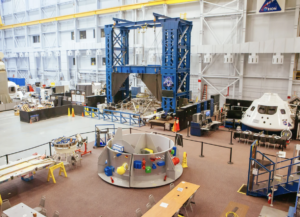According to a scientist, NASA may have inadvertently eliminated life on Mars. The exploration of Mars has been ongoing for decades, with various missions attempting to uncover signs of life on the red planet. Despite this, no definitive evidence has been found to confirm the existence of life on Mars. However, there is speculation that we may have come close to discovering life on Mars in the past.
In the 1970s, the Viking landers became the first US mission to safely land on Mars and conduct experiments on the planet. One researcher suggests that there is a possibility that life may have been present in a sample of Martian soil that was inadvertently extinguished during an experiment. This theory has raised questions about the methods used to detect life on Mars and the impact they may have had on potential Martian organisms.
Astrobiologist Dirk Schulze-Makuch of the Technical University Berlin in Germany has proposed that the methods used in past experiments may have been harmful to any potential Martian life forms. In a column published in Nature Astronomy and a post on Big Think, Schulze-Makuch highlights the need to consider the ecology of Mars when designing future experiments to search for life.
The Viking landers conducted a series of experiments in the 1970s to evaluate the Martian soil for biosignatures that could indicate the presence of life. The results of these experiments were inconclusive, with some indicating potential signs of life while others did not. Schulze-Makuch suggests that the methods used in these experiments may have inadvertently destroyed any evidence of life present on Mars.
One of the experiments, the gas chromatograph-mass spectrometer (GCMS), required samples to be heated, which could have resulted in the incineration of organic materials. Schulze-Makuch theorizes that other experiments, such as the labeled release and pyrolytic release experiments, may have similarly obliterated any evidence of life on Mars. These experiments involved introducing liquids into Martian samples and analyzing the results for signs of metabolism and photosynthesis.
Schulze-Makuch also questions the assumption that life on Mars would be similar to life on Earth and require water to survive. Recent discoveries have shown that life can thrive in extremely arid environments, like the conditions found on Mars. The introduction of water to these dry-adapted microbes could have detrimental effects and potentially eliminate any potential Martian life forms.
The researcher suggests that future missions to Mars should take into account the possibility of dry-adapted life forms and focus on detecting hydrated and hygroscopic compounds that could indicate the presence of microbial life. Nearly 50 years after the Viking missions, Schulze-Makuch argues that it is time for another life detection mission to Mars with a better understanding of the Martian environment.
In conclusion, the search for life on Mars has been ongoing for decades, with various missions attempting to uncover signs of life on the red planet. While no definitive evidence has been found to confirm the presence of life on Mars, there is speculation that past experiments may have inadvertently eliminated any potential life forms. Future missions to Mars should take into account the possibility of dry-adapted life forms and focus on detecting compounds that could indicate the presence of microbial life. It is essential to consider the ecology of Mars when designing experiments to search for life and to avoid inadvertently destroying any potential evidence of life on the red planet.






